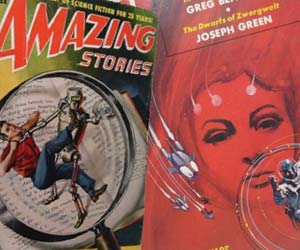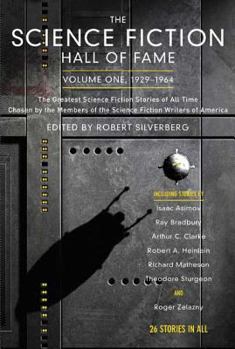The Science Fiction Hall of Fame, Volume One 1929-1964: The Greatest Science Fiction Stories of All Time Chosen by the Members of the Science Fiction
(Book #1 in the Science Fiction Hall of Fame Series)
Select Format
Select Condition 
Book Overview
The definitive collection of the best in science fiction stories between 1929-1964.
Customer Reviews
Best anthology ever.
Bought for "Mimsy Were the Borogoves"
Bought for "Mimsy Were the Borogoves"
Some great memories
A must have for your permanent collection
The Science Fiction Hall of Fame, Volume One Mentions in Our Blog

In 1926 the launch of Amazing Stories introduced a new genre of science fiction in the form of a pulp magazine. Writers like Robert Heinlein, Isaac Asimov, and even Stephen King began their careers in magazines like these. Let's take a brief look at some of the trend-setting pulp science fiction magazines which are well remembered, and highly valued, today.





